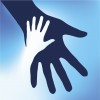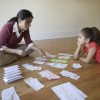 “Eddie Murphy, Duane Culpepper, Superman, Marilyn Monroe, Alonzo Mourning, Cher, Ice T, John Lennon, James Dean, and Babe Ruth: What do all these people have in common? They were foster kids! Foster parenting is a job that gets little attention and is in great demand. It involves taking a child into your home: a child who has been abused, neglected, or abandoned, or whose primary caregivers are unable to meet their parenting duties—and caring for them as if they are one of your own…” This 2-page Family Album Radio transcript was written by Amanda Quaas and Suzanna Smith, and published by the UF Department of Family Youth and Community Sciences, February 2013.
“Eddie Murphy, Duane Culpepper, Superman, Marilyn Monroe, Alonzo Mourning, Cher, Ice T, John Lennon, James Dean, and Babe Ruth: What do all these people have in common? They were foster kids! Foster parenting is a job that gets little attention and is in great demand. It involves taking a child into your home: a child who has been abused, neglected, or abandoned, or whose primary caregivers are unable to meet their parenting duties—and caring for them as if they are one of your own…” This 2-page Family Album Radio transcript was written by Amanda Quaas and Suzanna Smith, and published by the UF Department of Family Youth and Community Sciences, February 2013.
http://edis.ifas.ufl.edu/fm065
Tag: Family Youth and Community Sciences Department
Dealing with Picky Eaters (FAR8003/FM017)
 “There were motivations to eat that many baby boomers heard as they were growing up. Families across America were learning how to eat by the rules. But, according to current research, those rules may have done more harm than good…” This 2-page Family Album Radio transcript was written by Donna Davis, and published by the UF Department of Family Youth and Community Sciences, February 2013.
“There were motivations to eat that many baby boomers heard as they were growing up. Families across America were learning how to eat by the rules. But, according to current research, those rules may have done more harm than good…” This 2-page Family Album Radio transcript was written by Donna Davis, and published by the UF Department of Family Youth and Community Sciences, February 2013.
http://edis.ifas.ufl.edu/fm017
Why Fragile Families Don’t Marry (FAR3003/FM013)
 “He can’t support us. Why should I marry him?” This mom is not alone in her resistance to matrimony. In fact, increasing evidence has many of the opponents of the Healthy Marriage Initiative on the offensive. While the reauthorization of the welfare reform bill will allocate substantial funds to states for the development of programs for improving relations between unmarried parents, those who challenge the bill argue that marriage is not the answer… This 2-page Family Album Radio transcript was written by Donna Davis, and published by the UF Department of Family Youth and Community Sciences, February 2013.
“He can’t support us. Why should I marry him?” This mom is not alone in her resistance to matrimony. In fact, increasing evidence has many of the opponents of the Healthy Marriage Initiative on the offensive. While the reauthorization of the welfare reform bill will allocate substantial funds to states for the development of programs for improving relations between unmarried parents, those who challenge the bill argue that marriage is not the answer… This 2-page Family Album Radio transcript was written by Donna Davis, and published by the UF Department of Family Youth and Community Sciences, February 2013.
http://edis.ifas.ufl.edu/fm013
The Benefits of Breastfeeding (FAR8001/FM011)
 Medical research has found many compelling advantages to breastfeeding, not only for infants, but for mothers as well. According to the American Academy of Pediatrics, the advantages include nutritional, immunologic, developmental, psychological, social, economic, and environmental benefits. This 2-page Family Album Radio transcript was written by Donna Davis, and published by the UF Department of Family Youth and Community Sciences, February 2013.
Medical research has found many compelling advantages to breastfeeding, not only for infants, but for mothers as well. According to the American Academy of Pediatrics, the advantages include nutritional, immunologic, developmental, psychological, social, economic, and environmental benefits. This 2-page Family Album Radio transcript was written by Donna Davis, and published by the UF Department of Family Youth and Community Sciences, February 2013.
http://edis.ifas.ufl.edu/fm011
Parent Time (FAR0401/FM008)
 Parenting an infant is one of the most exciting and fulfilling opportunities of a lifetime. At the same time, it can be one of the most stressful periods in a person’s life. Research has shown that babies as young as one month old can sense and will be affected by a parent who is depressed or angry. Finding the delicate balance between the new parents’ needs and the baby’s needs is very important. This 2-page Family Album Radio transcript was written by Donna Davis, and published by the UF Department of Family Youth and Community Sciences, February 2013.
Parenting an infant is one of the most exciting and fulfilling opportunities of a lifetime. At the same time, it can be one of the most stressful periods in a person’s life. Research has shown that babies as young as one month old can sense and will be affected by a parent who is depressed or angry. Finding the delicate balance between the new parents’ needs and the baby’s needs is very important. This 2-page Family Album Radio transcript was written by Donna Davis, and published by the UF Department of Family Youth and Community Sciences, February 2013.
http://edis.ifas.ufl.edu/fm008
Women and Money: Unique Issues: Money Issues across the Life Cycle (FCS7248/FY1352)
 Most families depend on a woman’s income to help support the household. Some women are co-breadwinners while others are the only source of income. Throughout a woman’s life, she will experience many money issues unique to women. A woman may experience the following situations: lower earnings, a longer life expectancy, lack of retirement planning, divorce, and fewer years in the workplace because of childrearing or caring for older parents. Many of these issues can work against a woman’s ability to accumulate money and attain stable financial status. This 3-page fact sheet was written by Diann Douglas, Martie Gillen, and Lynda Spence, and published by the UF Department of Family Youth and Community Sciences, March 2013.
Most families depend on a woman’s income to help support the household. Some women are co-breadwinners while others are the only source of income. Throughout a woman’s life, she will experience many money issues unique to women. A woman may experience the following situations: lower earnings, a longer life expectancy, lack of retirement planning, divorce, and fewer years in the workplace because of childrearing or caring for older parents. Many of these issues can work against a woman’s ability to accumulate money and attain stable financial status. This 3-page fact sheet was written by Diann Douglas, Martie Gillen, and Lynda Spence, and published by the UF Department of Family Youth and Community Sciences, March 2013.
http://edis.ifas.ufl.edu/fy1352
Retirement Need Analysis: How Much of My Current Income Will I Need for Retirement? (FCS7251/FY1355)
 The amount of money needed for retirement varies from person to person. There may not be an exact amount, but there are ways to estimate the amount you will need. While no “magic number” exists for the amount you should save for retirement, there are calculations you can use to estimate the amount you will need. Calculating your wage replacement ratio (WRR) using either the top-down or bottom-up approach can help you determine how much money you should put aside for retirement and provide you with savings goals. This 3-page fact sheet was written by Jorge Ruiz-Menjivar and Martie Gillen, and published by the UF Department of Family Youth and Community Sciences, March 2013.
The amount of money needed for retirement varies from person to person. There may not be an exact amount, but there are ways to estimate the amount you will need. While no “magic number” exists for the amount you should save for retirement, there are calculations you can use to estimate the amount you will need. Calculating your wage replacement ratio (WRR) using either the top-down or bottom-up approach can help you determine how much money you should put aside for retirement and provide you with savings goals. This 3-page fact sheet was written by Jorge Ruiz-Menjivar and Martie Gillen, and published by the UF Department of Family Youth and Community Sciences, March 2013.
http://edis.ifas.ufl.edu/fy1355
Mutual Funds (FCS5266/FY1351)
 Mutual funds are open-end investment companies that use a pool of many investors’ money to buy shares of different investments. They can be an effective way for the average investor to build a diverse portfolio. Although these funds come with fees, taxes, and, in the case of load funds, commissions, an investor still has the potential to achieve positive returns and beat inflation. This 4-page fact sheet was written by Lisa Leslie and Michael S. Gutter, and published by the UF Department of Family Youth and Community Sciences, February 2013.
Mutual funds are open-end investment companies that use a pool of many investors’ money to buy shares of different investments. They can be an effective way for the average investor to build a diverse portfolio. Although these funds come with fees, taxes, and, in the case of load funds, commissions, an investor still has the potential to achieve positive returns and beat inflation. This 4-page fact sheet was written by Lisa Leslie and Michael S. Gutter, and published by the UF Department of Family Youth and Community Sciences, February 2013.
http://edis.ifas.ufl.edu/fy1351
MyPlate Foods to Increase: Fruits and Vegetables (FCS80022/FY1348)
 Fruits and vegetables should be a main component of every meal. They are low in calories and provide a number of vitamins that you need in your diet. By making half of your plate fruits and vegetables at every meal, you will reduce your risk for chronic diseases and may even protect yourself against certain types of cancer. This 4-page fact sheet provides information on fruits and vegetables and includes tips on how to add more of them to your diet. Written by Jonathan Holzinger, Karla Shelnutt, and Gail Kauwell, and published by the UF Department of Family Youth and Community Sciences, February 2013.
Fruits and vegetables should be a main component of every meal. They are low in calories and provide a number of vitamins that you need in your diet. By making half of your plate fruits and vegetables at every meal, you will reduce your risk for chronic diseases and may even protect yourself against certain types of cancer. This 4-page fact sheet provides information on fruits and vegetables and includes tips on how to add more of them to your diet. Written by Jonathan Holzinger, Karla Shelnutt, and Gail Kauwell, and published by the UF Department of Family Youth and Community Sciences, February 2013.
http://edis.ifas.ufl.edu/fy1348
Abdominal Obesity (FCS80021/FY1347)
 Santa Claus, Winnie the Pooh®, and Shrek® … what do these three characters have in common? You probably know them for being jolly and for having extra fat around their waists, also known as “abdominal obesity.” Although this may be cute in fairy tales or movies, abdominal obesity can be a serious health risk in the real world. Abdominal obesity, also known as central adiposity, is a buildup of fat tissue around the waist or midsection. It is a risk factor for certain health conditions. Read this 4-page fact sheet to find out more about the health risks of abdominal obesity and ways to prevent or treat it. Written by Erica Bub, Karla Shelnutt, and Gail Kauwell, and published by the UF Department of Family Youth and Community Sciences, February 2013.
Santa Claus, Winnie the Pooh®, and Shrek® … what do these three characters have in common? You probably know them for being jolly and for having extra fat around their waists, also known as “abdominal obesity.” Although this may be cute in fairy tales or movies, abdominal obesity can be a serious health risk in the real world. Abdominal obesity, also known as central adiposity, is a buildup of fat tissue around the waist or midsection. It is a risk factor for certain health conditions. Read this 4-page fact sheet to find out more about the health risks of abdominal obesity and ways to prevent or treat it. Written by Erica Bub, Karla Shelnutt, and Gail Kauwell, and published by the UF Department of Family Youth and Community Sciences, February 2013.
http://edis.ifas.ufl.edu/fy1347
Raising Healthy Children: Milk and Egg Allergies (FCS80020/FY1346)
 Milk and eggs are familiar, nutritious foods that most children enjoy, but these foods can cause problems for children with milk and egg allergies. If your child is allergic to milk or eggs, you need to consider steps you and your child can take to avoid these foods, and you need to make sure your child gets enough of the proper nutrients, especially if certain foods are removed from his or her diet. This 5-page fact sheet will help you learn more about milk and egg allergies and how to make sure your allergic child stays safe. Written by Jonathan Holzinger, Karla Shelnutt, and Gail Kauwell, and published by the UF Department of Family Youth and Community Sciences, February 2013.
Milk and eggs are familiar, nutritious foods that most children enjoy, but these foods can cause problems for children with milk and egg allergies. If your child is allergic to milk or eggs, you need to consider steps you and your child can take to avoid these foods, and you need to make sure your child gets enough of the proper nutrients, especially if certain foods are removed from his or her diet. This 5-page fact sheet will help you learn more about milk and egg allergies and how to make sure your allergic child stays safe. Written by Jonathan Holzinger, Karla Shelnutt, and Gail Kauwell, and published by the UF Department of Family Youth and Community Sciences, February 2013.
http://edis.ifas.ufl.edu/fy1346
Raising Healthy Children: Packing a Peanut-Free Lunch (FCS80019/FY1345)
 Peanut butter is a staple in the diets of many children, but it can cause serious problems for those with a peanut allergy. Knowing how to identify foods that contain peanuts, what to pack for school lunches, and how to reduce accidental contact with peanuts will help keep children with peanut allergies safe when they are away from home. This 5-page fact sheet was written by Sarah Schmidt, Karla Shelnutt, and Gail Kauwell, and published by the UF Department of Family Youth and Community Sciences, February 2013.
Peanut butter is a staple in the diets of many children, but it can cause serious problems for those with a peanut allergy. Knowing how to identify foods that contain peanuts, what to pack for school lunches, and how to reduce accidental contact with peanuts will help keep children with peanut allergies safe when they are away from home. This 5-page fact sheet was written by Sarah Schmidt, Karla Shelnutt, and Gail Kauwell, and published by the UF Department of Family Youth and Community Sciences, February 2013.
http://edis.ifas.ufl.edu/fy1345
Save a Child: How to Identify and Report Child Abuse (FCS2119/HE855)
 People who work with children, parents, and the general public may at some point in their lives and careers have to report child abuse. It is important that you be able to recognize the symptoms of abuse and be able to contact the appropriate authorities. By reporting abuse, you may save a child’s life or prevent serious injury. This 4-page fact sheet discusses child abuse laws and procedures for reporting abuse. It also contains information about different types of abuse and how to identify abused or neglected children. Characteristics listed here are general and intended as guidelines. A child or family may exhibit many warning signs of abuse, though no abuse has occurred or ever will occur. Written by Andrew E. Toelle and Kate Fogarty, and published by the UF Department of Family Youth and Community Sciences, January 2013.
People who work with children, parents, and the general public may at some point in their lives and careers have to report child abuse. It is important that you be able to recognize the symptoms of abuse and be able to contact the appropriate authorities. By reporting abuse, you may save a child’s life or prevent serious injury. This 4-page fact sheet discusses child abuse laws and procedures for reporting abuse. It also contains information about different types of abuse and how to identify abused or neglected children. Characteristics listed here are general and intended as guidelines. A child or family may exhibit many warning signs of abuse, though no abuse has occurred or ever will occur. Written by Andrew E. Toelle and Kate Fogarty, and published by the UF Department of Family Youth and Community Sciences, January 2013.
http://edis.ifas.ufl.edu/he855
Datos sobre las vitaminas (FCS8808S/FY1343)
 Las vitaminas son compuestos químicos que el cuerpo utiliza de muchas maneras. Nosotros necesitamos obtener las vitaminas en nuestra dieta porque nuestros cuerpos no las pueden crear. Existen 13 tipos de vitaminas que han sido identificadas como nutrientes importantes para los humanos. This 3-page fact sheet was written by R. Elaine Turner and Wendy J. Dahl, and published by the UF Department of Family Youth and Community Sciences, November 2012.
Las vitaminas son compuestos químicos que el cuerpo utiliza de muchas maneras. Nosotros necesitamos obtener las vitaminas en nuestra dieta porque nuestros cuerpos no las pueden crear. Existen 13 tipos de vitaminas que han sido identificadas como nutrientes importantes para los humanos. This 3-page fact sheet was written by R. Elaine Turner and Wendy J. Dahl, and published by the UF Department of Family Youth and Community Sciences, November 2012.
http://edis.ifas.ufl.edu/fy1343
Datos sobre la niacina (FCS8669S/FY1340)
 La niacina es una de las vitaminas del grupo B (vitamina B3). Nuestro cuerpo necesita la niacina para usar los carbohidratos, las grasas y las proteínas. La niacina también se necesita para reparar el ADN y para el uso normal del calcio en el cuerpo. This 2-page fact sheet was written by R. Elaine Turner y Wendy J. Dahl, and published by the UF Department of Family Youth and Community Sciences, November 2012.
La niacina es una de las vitaminas del grupo B (vitamina B3). Nuestro cuerpo necesita la niacina para usar los carbohidratos, las grasas y las proteínas. La niacina también se necesita para reparar el ADN y para el uso normal del calcio en el cuerpo. This 2-page fact sheet was written by R. Elaine Turner y Wendy J. Dahl, and published by the UF Department of Family Youth and Community Sciences, November 2012.
http://edis.ifas.ufl.edu/fy1340
Facts about Niacin (FCS8669/FY212)
 Niacin is one of the B vitamins (vitamin B3). Our bodies need niacin to use the energy in carbohydrates, fats, and proteins. Niacin also is needed for DNA repair and for the normal use of calcium in the body. This 2-page fact sheet was written by R. Elaine Turner and Wendy J. Dahl, and published by the UF Department of Family Youth and Community Sciences, November 2012.
Niacin is one of the B vitamins (vitamin B3). Our bodies need niacin to use the energy in carbohydrates, fats, and proteins. Niacin also is needed for DNA repair and for the normal use of calcium in the body. This 2-page fact sheet was written by R. Elaine Turner and Wendy J. Dahl, and published by the UF Department of Family Youth and Community Sciences, November 2012.
http://edis.ifas.ufl.edu/fy212
Coping with a Money Crunch: Family Cooperation (FCS7005/FY227)
 It’s easy to say that financial problems, such as losing your job, should be shared with your family. But it’s hard to know just how to do that. One method of bringing the family together with a feeling of team spirit is a family council meeting. This is a simple strategy for bringing a harmonious pattern into the family routine. This 2-page fact sheet was published by the UF Department of Family Youth and Community Sciences, December 2012.
It’s easy to say that financial problems, such as losing your job, should be shared with your family. But it’s hard to know just how to do that. One method of bringing the family together with a feeling of team spirit is a family council meeting. This is a simple strategy for bringing a harmonious pattern into the family routine. This 2-page fact sheet was published by the UF Department of Family Youth and Community Sciences, December 2012.
http://edis.ifas.ufl.edu/fy227
Datos sobre la riboflavina (FCS8668S/FY1344)
 La riboflavina es una de las vitaminas del grupo B. También es conocida como la vitamina B2. Nosotros necesitamos la riboflavina para utilizar los carbohidratos, grasas y proteínas en los alimentos que comemos. La riboflavina ayuda a utilizar estos nutrientes en energía para el cuerpo y para funciones como antioxidante. La riboflavina también se necesita para utilizar correctamente las vitaminas niacina, el ácido fólico y la vitamina B6. This 2-page fact sheet was written by R. Elaine Turner y Wendy J. Dahl, and published by the UF Department of Family Youth and Community Sciences, November 2012.
La riboflavina es una de las vitaminas del grupo B. También es conocida como la vitamina B2. Nosotros necesitamos la riboflavina para utilizar los carbohidratos, grasas y proteínas en los alimentos que comemos. La riboflavina ayuda a utilizar estos nutrientes en energía para el cuerpo y para funciones como antioxidante. La riboflavina también se necesita para utilizar correctamente las vitaminas niacina, el ácido fólico y la vitamina B6. This 2-page fact sheet was written by R. Elaine Turner y Wendy J. Dahl, and published by the UF Department of Family Youth and Community Sciences, November 2012.
http://edis.ifas.ufl.edu/fy1344
Datos sobre los minerales (FCS8809S/FY1341)
 Los minerales son substancias como el calcio, el fósforo, el hierro y el zinc que se encuentran en las rocas y la tierra. También, se necesitan para tener una nutrición adecuada. Hay 16 minerales diferentes que sabemos que son necesarios en nuestra dieta. Varios otros minerales pueden ser necesarios en cantidades pequeñas. This 4-page fact sheet was written by R. Elaine Turner y Wendy J. Dahl, and published by the UF Department of Family Youth and Community Sciences, November 2012.
Los minerales son substancias como el calcio, el fósforo, el hierro y el zinc que se encuentran en las rocas y la tierra. También, se necesitan para tener una nutrición adecuada. Hay 16 minerales diferentes que sabemos que son necesarios en nuestra dieta. Varios otros minerales pueden ser necesarios en cantidades pequeñas. This 4-page fact sheet was written by R. Elaine Turner y Wendy J. Dahl, and published by the UF Department of Family Youth and Community Sciences, November 2012.
http://edis.ifas.ufl.edu/fy1341
Women and Money: Unique Issues – Finances in a Divorce (FCS7247/FY1349)
 Separation and divorce impact family financial management on multiple levels. Women going through a divorce will have reduced resources and the added expenses of the divorce process. If you are going through a divorce, you should carefully examine the financial factors listed in this publication. Also, you should know that sensible planning may help to lessen the financial stress associated with the transition from marriage to divorce. This 7-page fact sheet was written by Lynda Spence, Martie Gillen, and Diann Douglas, and published by the UF Department of Family Youth and Community Sciences, January 2013.
Separation and divorce impact family financial management on multiple levels. Women going through a divorce will have reduced resources and the added expenses of the divorce process. If you are going through a divorce, you should carefully examine the financial factors listed in this publication. Also, you should know that sensible planning may help to lessen the financial stress associated with the transition from marriage to divorce. This 7-page fact sheet was written by Lynda Spence, Martie Gillen, and Diann Douglas, and published by the UF Department of Family Youth and Community Sciences, January 2013.
http://edis.ifas.ufl.edu/fy1349